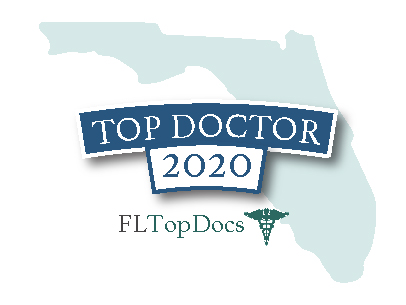Laser Surgery
The word "laser" conjures up images of something technologically advanced and almost magical. Lasers are depicted in the media and in popular literature as being able to do amazing things and to some extent, they do. It is important to remember, however, that lasers are simply a very specific type of light. Laser light is monochromatic, that is, it has a single wavelength (sunlight has a broad spectrum of wavelengths). Laser light is coherent which is to say that the light does not diverge as it travels. The beam remains focused so the spot of light is the same size whether it is a foot away or a mile. Lasers exert their effect in only one way: the laser light is absorbed by an appropriate target and the laser energy is converted to heat. Because lasers are very powerful, targets get very hot, very fast. A laser can literally cut through metal.
Lasers have many applications in medicine. They are used in many procedures in the eye, for example. They have a number of wonderful applications in plastic surgery. We have several lasers. One is the pulsed carbon dioxide (CO2) laser. Electricity is passed through a chamber containing carbon dioxide gas and this produces a very powerful laser beam that targets water. It is a bit more complicated than that you get the idea. When a CO2 laser beam hits water it is so powerful that the water is instantaneously vaporized. Pulsing means that the laser light hits the target only for a tiny fraction of a second. This allows great precision. Because cells contain water, CO2 lasers are very effective for destroying skin lesions, such as warts, moles, tags, and even skin cancers. They are also excellent for "resurfacing the skin" (also called a "peel") to remove or smooth wrinkles in the skin. We use a Luxar pulsed CO2 laser in our practice and it remains the "gold standard" for smoothing wrinkled skin.
A recent addition to our laser armamentarium is the fractionated erbium laser. Erbium lasers also target water, even more efficiently than CO2. Fractionation means that instead of a single beam of light, the laser hits the skin with many tiny beams. This leaves intact skin between the laser "hits" and this speeds the healing process significantly. Resurfacing with a fractionated erbium laser heals in half the time as with the CO2 laser. The results, however, are not as dramatic. One trades off a lesser degree of improvement for less, expense, less risk and need for anesthesia, and less "down" time after the procedure.
Skin resurfacing is a wonderful procedure, either alone or as an addition to other procedures. The resurfaced skin will look and feel more youthful, it will be smoother, and even sun damage can be improved. Our consultation will help patients determine what procedure is best for them.
We also have a laser called a "non-ablative" laser. This interesting laser penetrates the skin without damaging it and exerts its effect below. It is the only laser approved by the FDA as a treatment for stretch marks. It is also used for scars, including acne and surgical scars, for the purpose of softening and flattening them. This laser can also be used for wrinkles but is not as effective as the two above.
We also several IPL devices. IPL stands for Intense Pulsed Light. Unlike a laser, IPL is not monochromatic but it is fairly coherent. IPL's are very good for getting rid of brown spots on the skin that result from aging and sun exposure. "Liver spots" (which, really, have nothing to do with the liver) and freckles on the backs of hands and arms, on the chest, and face respond beautifully. Strict attention to avoiding unnecessary sun exposure is important or the spots can return fairly promptly. IPL can be used for blood vessels, such as the capillaries that give the cheeks and nose a red "W.C. Fields" look in those who have Rosacea. It can eliminate the visible vessels often seen alongside the nose. Finally, IPL can be used for very effective hair reduction on the face, arm pit, and bikini line.
While laser and IPL lights are very precise, their effect on individuals can vary greatly. Some skin types respond better than others. Genetics, degree of sun damage, natural skin pigmentation, overall health, other medical conditions, and more can all play a role in the outcome of a laser treatment. A consultation is very important to help you determine if one of our lasers or IPL's are right for you.
While lasers are very useful devices when properly used, they are often over used and over hyped. In many procedures, there is no advantage in using lasers over more traditional techniques and, in fact, in some cases, the laser procedure is not as good.
We also have a new laser, the Lifesculpt laser, for liposuction procedures. Read more about that in our liposuction section.





